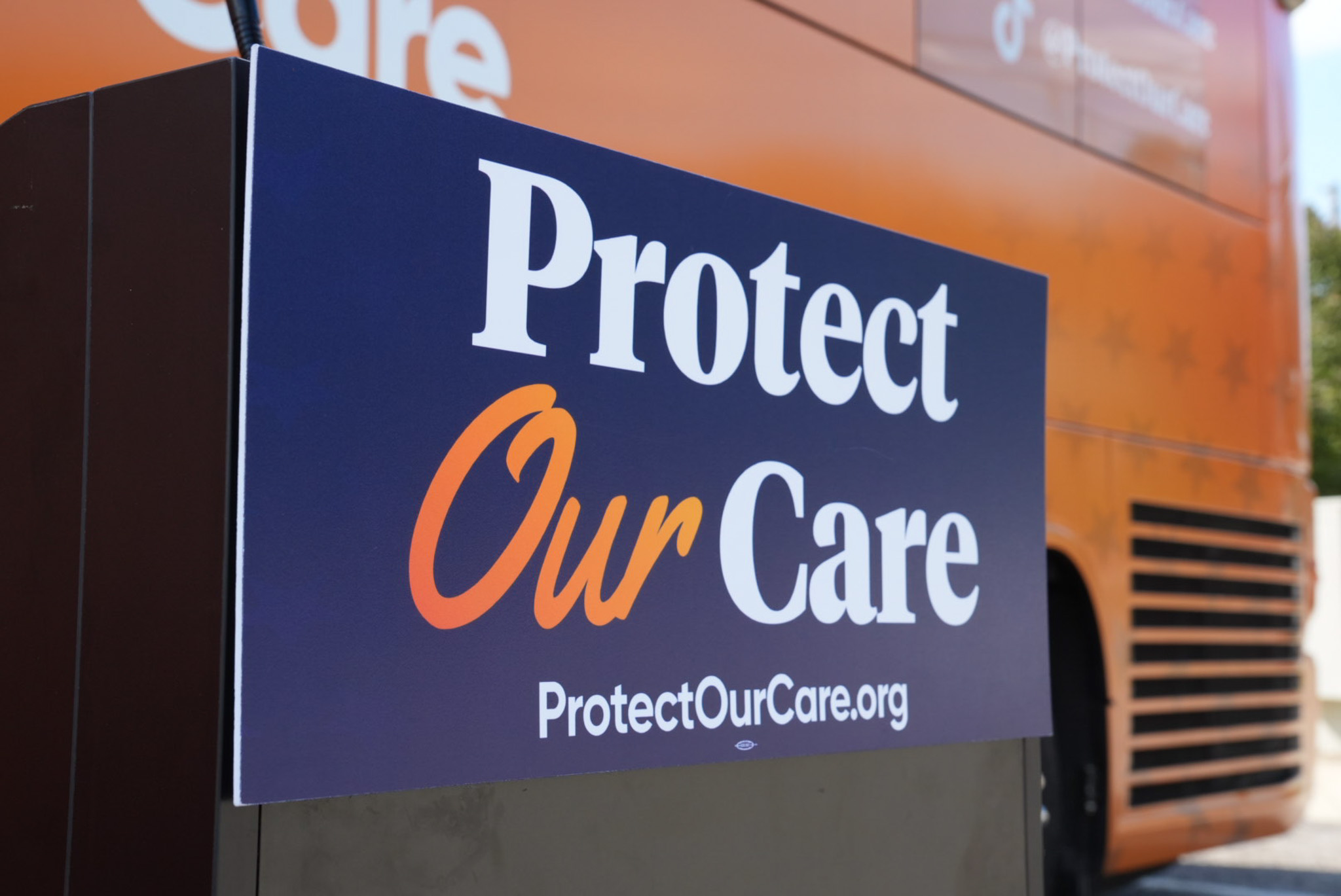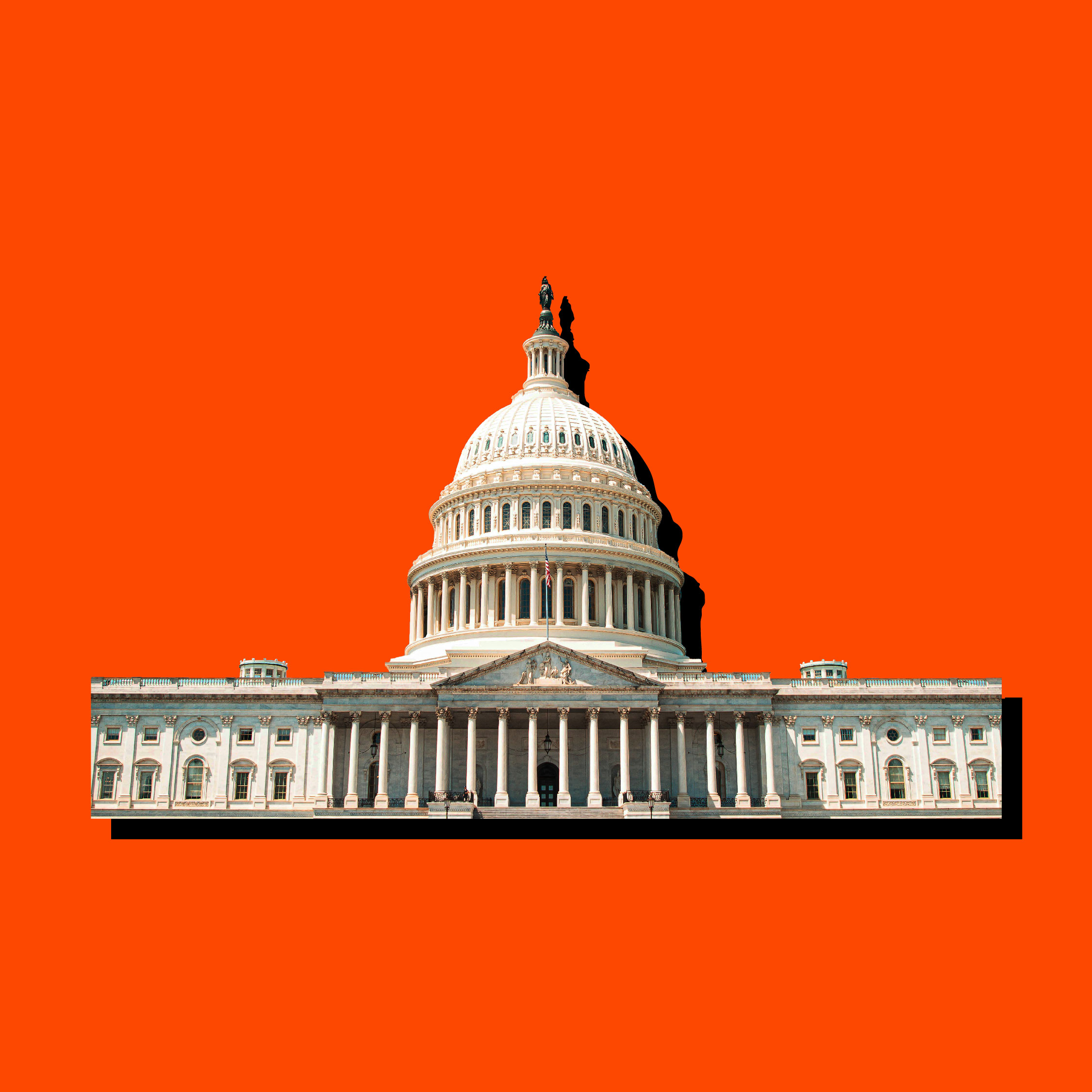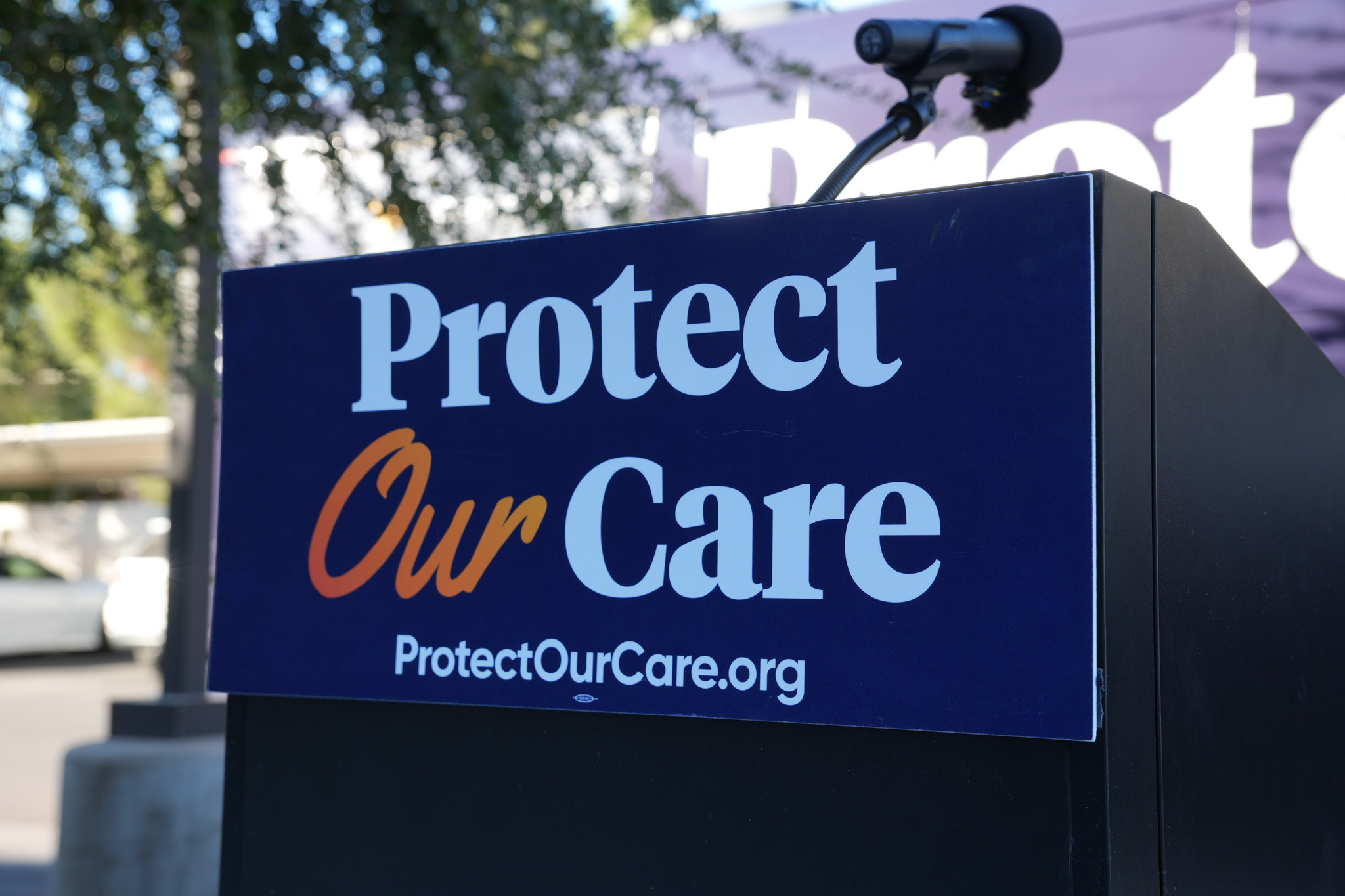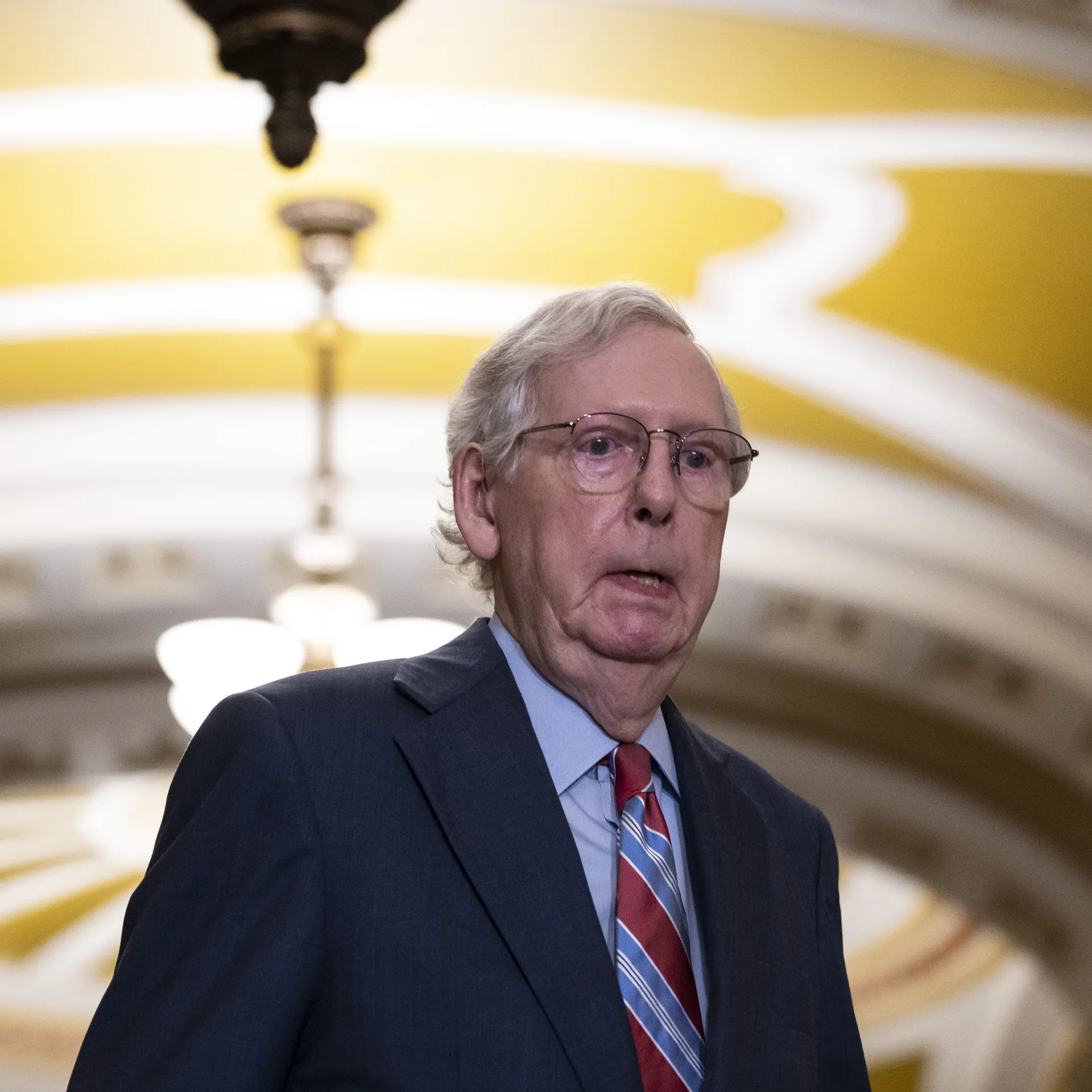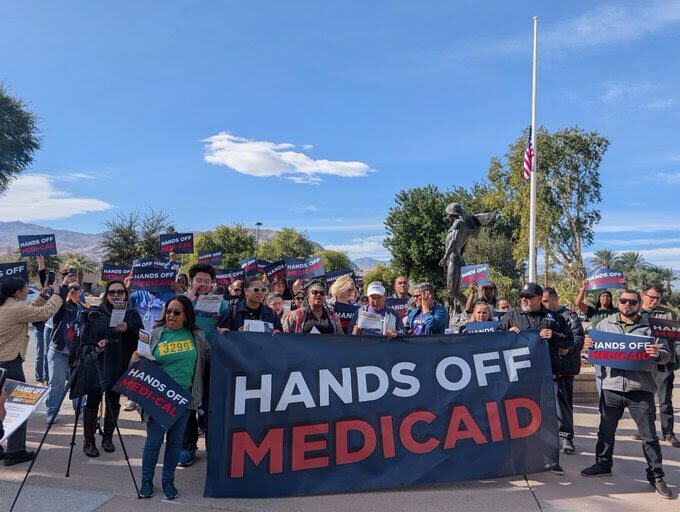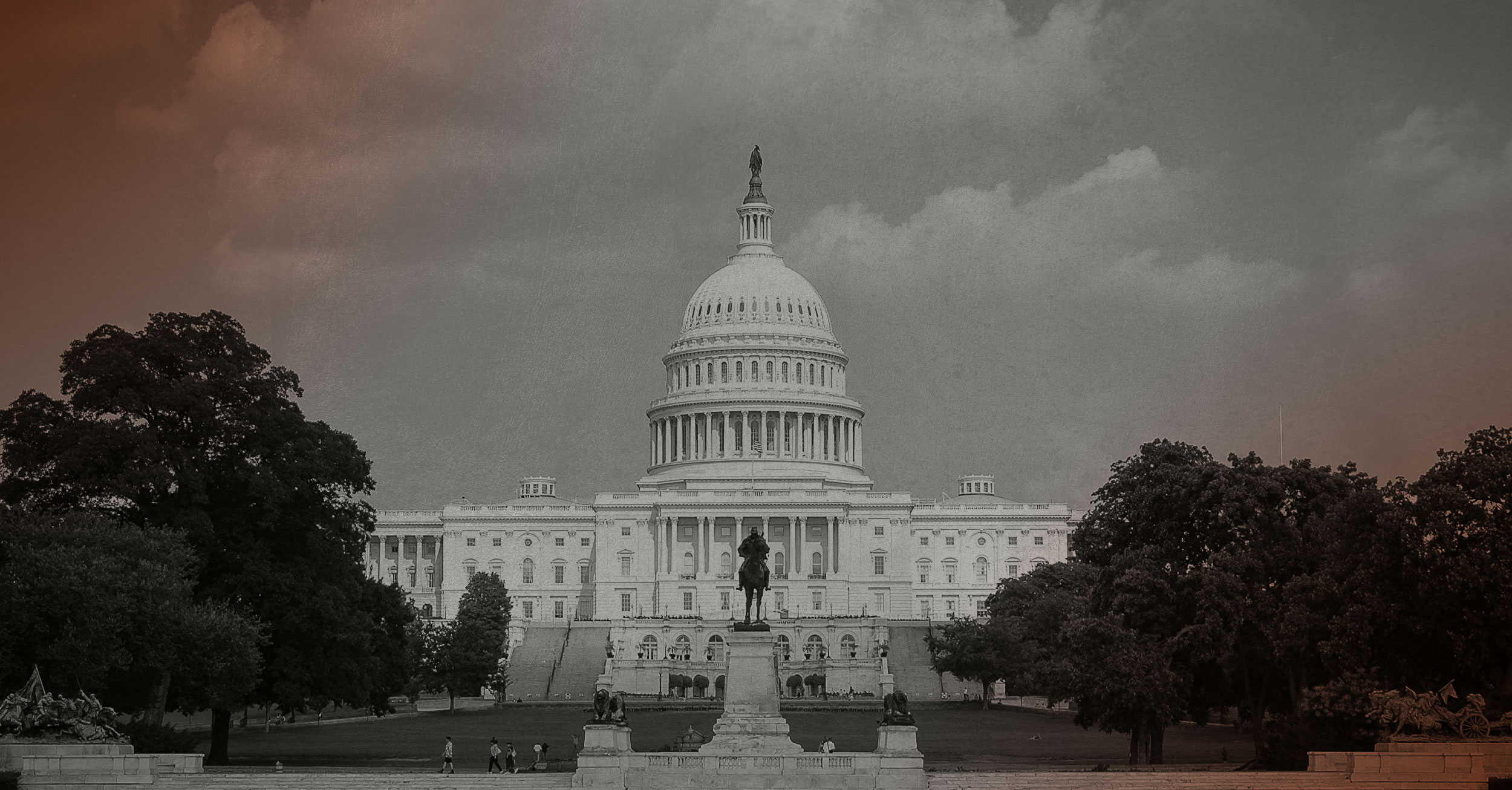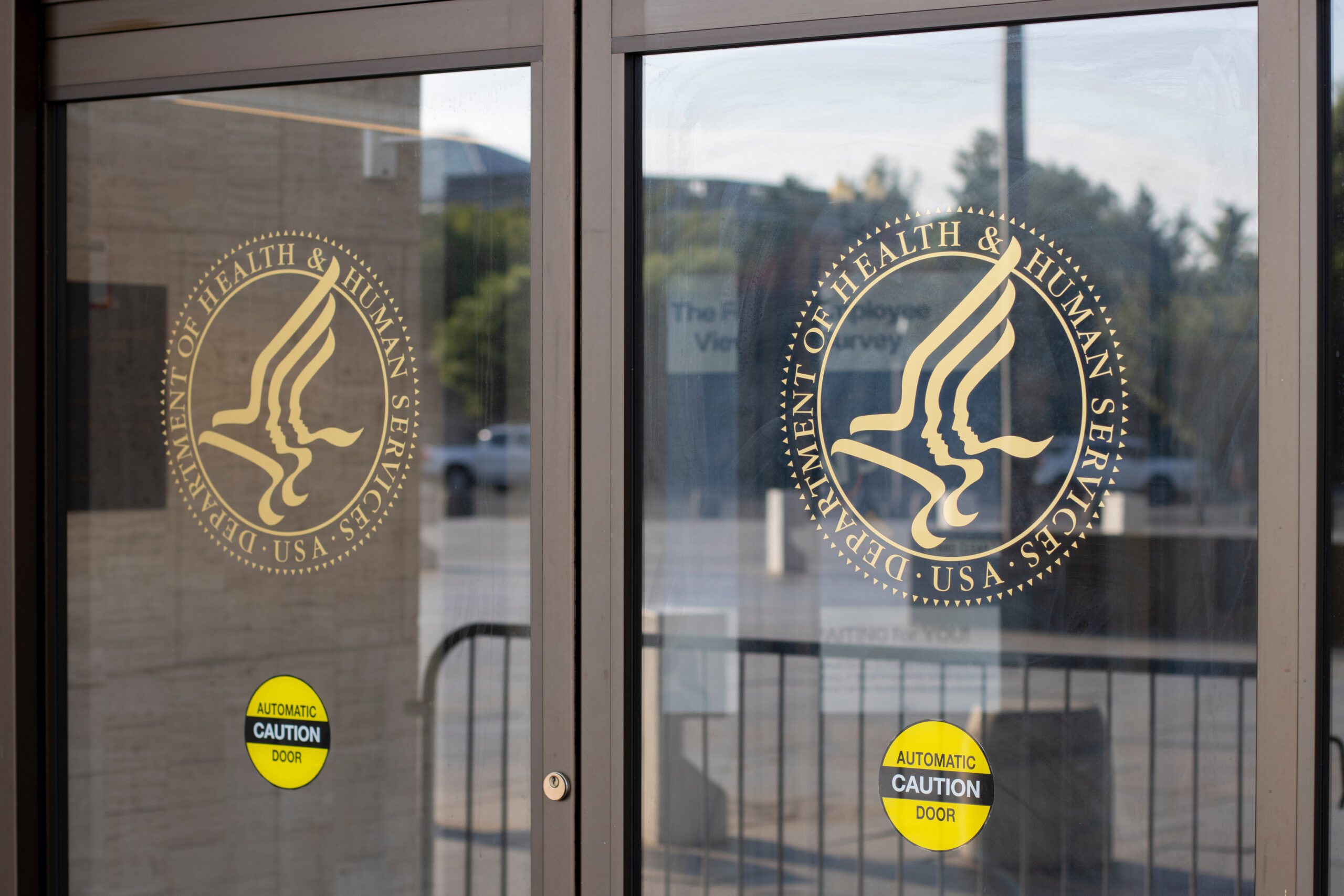
Welcome to Public Health Watch, a weekly roundup from Protect Our Care tracking catastrophic activity as part of Donald Trump’s sweeping war on health care. From installing anti-vaccine zealot RFK Jr. as Secretary of HHS to empowering Elon Musk to make indiscriminate cuts to our public health infrastructure, including the National Institutes of Health and the Centers for Disease Control, Donald Trump is endangering the lives of millions of Americans. Protect Our Care’s Public Health Watch will shine a spotlight on the worst of the Trump/RFK/Musk war on vaccines, science and public health and serve as a resource for the press, public and advocacy groups to hold them accountable.
What’s Happening In Public Health?
Catastrophic Cuts Are Creating Chaos And Endangering Americans’ Health And Scientific Innovation
The Times: ‘RFK Jr is a disaster’: Staff describe chaos in ‘anti-science’ regime Ever since Robert F Kennedy Jr was appointed health secretary in February, more than 10,000 staff — many with decades of experience — have been fired. Now, the tens of thousands of health workers and scientists still employed by the US government feel like their lives have been turned upside down, according to ten current and former staff at the CDC, the Food and Drug Administration (FDA) and National Institutes of Health (NIH), speaking to The Times. Under instruction from Kennedy and Doge, health priorities have been reset, longstanding scientific norms disrupted and thousands of research programmes cancelled because of their perceived “wokeness”, officials said. “RFK Jr is a disaster,” said one CDC grant specialist who joined the agency within the past five years. “He is completely dismantling things to the point where the damage is going to become irreparable.”
Politico: RFK Jr. is making it more difficult to enroll in Obamacare The Trump administration is tightening eligibility for Obamacare coverage in what it says is a bid to combat a “surge of improper enrollments” and to lower insurance costs broadly. Critics say the rule changes will cause eligible people to miss out on a chance at subsidized health insurance and increase the uninsured rate. “With this rule, we’re lowering marketplace premiums, expanding coverage for families, and ensuring that illegal aliens do not receive taxpayer-funded health insurance,” HHS Secretary Robert F. Kennedy Jr. said in a press release that projects $12 billion in savings from the rule changes next year. Those changes include reducing the enrollment period for plans by two weeks, adding paperwork requirements for some enrollees, ending the use of federal subsidies to help cover the cost of transgender people’s transition-related medical care, and barring Deferred Action for Childhood Arrivals recipients from purchasing insurance on the exchanges. Those are immigrants brought to the country without documentation when they were children whom President Barack Obama protected from deportation. The final rule also repeals a special enrollment period for individuals in households earning less than 150 percent of the federal poverty level. CMS estimates about 725,000 to 1.8 million people will lose coverage as a result of the final rule. In January, CMS said about 24 million people had signed up for Obamacare coverage for 2025.
Politico: The MAHA report praised this nutrition program. Trump wants to cut it. The Trump administration and House Republicans are taking aim at a popular nutrition program that earned rare praise in the Make America Healthy Again Commission report. The Special Supplemental Nutrition Program for Women, Infants and Children, or WIC, is in the crosshairs as the White House moves to cut fruit and vegetable benefits that were expanded during the Biden administration. Food aid advocates are expressing dismay over the disconnect between President Donald Trump’s spending plans and the stated aims of his MAHA Commission, which noted in its report that WIC helps lower obesity rates in kids. Shrinking the fruit and vegetable benefit could lead to declining participation and lessen the program’s ability to help families build healthy eating habits, supporters say. The program currently serves more than 6 million low-income people.
Washington Post: His custom cancer therapy is in an NIH freezer. He may not get it in time. Richard Schlueter, 56, was planting cucumbers and squash in his community garden plot in Greensboro, Georgia, in May when he tore open a bag of soil and heard a pop. His collarbone had snapped. In early June, a scan revealed that the cancer that started in his tonsils was racing through his bones. That day, he called a medical team at the National Institutes of Health that had created an experimental cell therapy, custom-made to attack his cancer as part of a clinical trial. He needed it. Now. Instead, he received more bad news: His therapy would be delayed at least a month because of staff cuts at NIH. A week later, Schlueter and his wife, Michelle, saw NIH Director Jay Bhattacharya push back on concerns raised by his own staff that the ouster of essential employees and other disruptions to the biomedical research agency were harming science and patients. Bhattacharya said on X that objections raised in a document called the Bethesda Declaration contained “fundamental misconceptions” about NIH’s new direction. Each termination was being reviewed, and some workers were reinstated, he added. But the Schlueters had a front-row seat to the effects of the job losses. Richard’s therapy was in a freezer, nearly ready to go. All along, they had been told the final step of preparation takes three to four weeks. But on June 3, his NIH doctor informed him that it would now take eight to 10 weeks because of cuts to essential lab personnel — a painful illustration of the life-and-death stakes of the administration’s approach to shrinking the government workforce.
Health Impacts:
Chaos at the CDC and FDA Is Putting America’s Public Health At Risk
New York Times: Why a Vaccine Expert Left the C.D.C.: ‘Americans Are Going to Die’ In 13 years at the Centers for Disease Control and Prevention, Dr. Fiona Havers crafted guidance for contending with Zika virus, helped China respond to outbreaks of bird flu and guided safe burial practices for Ebola deaths in Liberia. More recently, she was a senior adviser on vaccine policy, leading a team that produced data on hospitalizations related to Covid-19 and respiratory syncytial virus. To the select group of scientists, federal officials and advocates who study who should get immunizations and when, Dr. Havers is well known, an embodiment of the C.D.C.’s intensive data-gathering operations. On Monday, Dr. Havers resigned, saying she could no longer continue while the health secretary, Robert F. Kennedy Jr., dismantled the careful processes that help formulate vaccination standards in the United States. “If it isn’t stopped, and some of this isn’t reversed, like, immediately, a lot of Americans are going to die as a result of vaccine-preventable diseases,” she said in an interview with The New York Times, the first since her resignation. Dr. Havers, 49, cited an escalating series of attacks on federal vaccine policy by Mr. Kennedy.
Stat: Top gene therapy regulator forced out at FDA Nicole Verdun, director of the office that reviews cell and gene therapies at the Food and Drug Administration, and her deputy Rachael Anatol have been placed on administrative leave and escorted out of the agency, according to a recording of a meeting obtained by STAT. Verdun had worked closely with Peter Marks, the former head of the Center for Biologics Evaluation and Research, on establishing new paths for bringing gene therapies to market, particularly in rare diseases. Marks was forced out by the Trump administration in March for his role in regulating Covid-19 vaccines. Verdun was seen as a key figure in the center, especially after Marks’ departure. At that time, the CEO of a gene therapy maker told STAT, “We value continuity, so having Verdun stay at the FDA is really important.” In addition to Marks, other top officials at CBER have left since the beginning of the administration.
RFK Jr. Is An Extreme MAGA Anti-Vaxxer Who’s Breaking His “Assurances” To Key Republicans To Get Confirmed And Mis-Managing HHS
NBC: Kennedy’s picks for vaccine advisory panel raise concerns about anti-vaccine bias Health and Human Services Secretary Robert F. Kennedy Jr.’s unprecedented shake-up of a key federal vaccine advisory panel ushered in appointees who have expressed skepticism about the value and safety of vaccines — raising concerns about the group’s objectivity. The eight new members Kennedy appointed to the Advisory Committee on Immunization Practices (ACIP), which makes recommendations to the Centers for Disease Control and Prevention about who should get certain vaccines, include three people who have testified as expert witnesses against vaccine makers, NBC News found in a review of the members’ professional backgrounds.
Politico: Vaccine advisers to review ingredient RFK Jr. has long wanted banned Before he became health secretary, Robert F. Kennedy Jr. wrote a book alleging the vaccine preservative thimerosal likely caused autism and should be banned — a claim that health agencies now under his control have said is unfounded. Next week, Kennedy-appointed advisers to the Centers for Disease Control and Prevention will consider thimerosal’s use in vaccines. The agenda for the CDC’s Advisory Committee on Immunization Practices, released Wednesday, says the panel will hold two separate votes: one on “Influenza Vaccines” and one on influenza vaccines that contain thimerosal. In his 2014 book, Kennedy argued that “there is a virtually unanimous scientific consensus among the hundreds of research scientists who have published peer-reviewed articles in the field that Thimerosal is immensely toxic to brain tissue” and called for its removal from vaccines. Myriad peer-reviewed scientific studies dispute that there’s any link between thimerosal and health harms, and a federal vaccine court rejected arguments alleging a link between thimerosal-containing vaccines and autism in the late 2000s. The panel’s move to examine thimerosal suggests Kennedy is using it to pursue the ban he’s long sought, wrote MedPage Today Editor-in-Chief Jeremy Faust in a commentary. ”Elevating this debunked myth to national policy lends credence to misinformation, and sets the stage for other actions that may undermine vaccine confidence in the United States,” Faust added.
NOTUS: Sen. Bernie Sanders Wants an Investigation of RFK Jr.’s Vaccine Firings Sen. Bernie Sanders is asking Sen. Bill Cassidy, the Republican chair of the health committee, to investigate Health Secretary Robert F. Kennedy Jr.’s recent decision to fire all 17 members of the nation’s top vaccine advisory committee. In a letter provided to NOTUS by the Vermont senator’s office, Sanders questioned Kennedy’s recent dismissal of the entire membership of the Centers for Disease Control and Prevention’s Advisory Committee on Immunization Practices. Sanders is the ranking member of the Committee on Health, Education, Labor and Pensions.
NBC: Outside groups organize to form unbiased, independent vaccine panel In the wake of Health Secretary Robert F. Kennedy Jr.’s decision to shake up a key federal vaccine advisory committee, outside medical organizations and independent experts are looking for alternate sources of unbiased information and even considering forming a group of their own. A leading contender is a new group led by Michael Osterholm, an infectious disease expert and the director of the Center for Infectious Disease Research and Policy (CIDRAP) at the University of Minnesota. Osterholm is launching the Vaccine Integrity Project at CIDRAP as a potential alternative to the Centers for Disease Control and Prevention’s Advisory Committee on Immunization Practices.
Other MAHA Activity:
Disastrous, Dangerous Appointments
Stat: Vinay Prasad named chief medical and science officer at FDA Vinay Prasad will now hold three separate jobs at the Food and Drug Administration, solidifying his position as a top adviser to Commissioner Marty Makary. Prasad will serve as the agency’s chief medical and scientific officer, in addition to leading the center that regulates vaccines, gene therapies, and the blood supply, according to an internal memo obtained by STAT. Traditionally, the agency’s chief scientist and chief medical officer have been two distinct roles. “In this capacity, he will serve as a trusted advisor to the FDA Commissioner and other senior officials on cross-cutting and emerging medical and scientific issues impacting regulatory science and public health,” Makary wrote in the memo announcing the news to staff. The agency didn’t immediately respond to a request for comment. The role greatly expands Prasad’s purview, giving him explicit authority to oversee and weigh in on regulatory issues in any center. He will advise Makary on medical policy and regulatory decisions, and represent the FDA at advisory committee meetings and external forums. Prasad, a hematologist and oncologist, made his name in the medical world as a health care provocateur, criticizing the designs of clinical trials and the relationships between doctors and industry. The FDA was a frequent target, with Prasad accusing regulators of being too lenient and cozy with industry. He’s struck a more earnest, respectful tone with staff since becoming a leader at the agency last month.
Public Health Threats
New York Times: ‘I Feel Like I’ve Been Lied To’: When a Measles Outbreak Hits Home He was a chiropractor by training, but in a remote part of West Texas with limited medical care, Kiley Timmons had become a first stop for whatever hurt. Ear infections. Labor pains. Oil workers who arrived with broken ribs and farmers with bulging discs. For more than a decade, Kiley, 48, had seen 20 patients each day at his small clinic located between a church and a gas station in Brownfield, population 8,500. He treated what he could, referred others to physicians and prayed over the rest. It wasn’t until early this spring that he started to notice something unfamiliar coming through the door: aches that lingered, fevers that wouldn’t break, discolored patches of skin that didn’t make sense. At first, he blamed it on a bad flu season, but the symptoms stuck around and then multiplied. By late March, a third of his patients were telling him about relatives who couldn’t breathe. And then Kiley started coughing, too. His wife, Carrollyn, had recently tested positive for Covid, but her symptoms eased as Kiley’s intensified. He went to a doctor at the beginning of April for a viral panel, but every result came back negative. The doctor decided to test for the remote possibility of measles, since there was a large outbreak spreading through a Mennonite community 40 miles away, but Kiley was vaccinated. “I feel like I’m dying,” Kiley texted a friend. He couldn’t hold down food or water. He had already lost 10 pounds. His chest went numb, and his arms began to tingle. His oxygen was dropping dangerously low when he finally got the results. “Positive for measles,” he wrote to his sister, in mid-April. “Just miserable. I can’t believe this.” Twenty-five years after measles was officially declared eliminated from the United States, this spring marked a harrowing time of rediscovery. A cluster of cases that began at a Mennonite church in West Texas expanded into one of the largest outbreaks in a generation, spreading through communities with declining vaccination rates as three people died and dozens more were hospitalized from Mexico to North Dakota. Public health officials tracked about 1,200 confirmed cases and countless exposures across more than 30 states. People who were contagious with measles boarded domestic flights, shopped at Walmart, played tuba in a town parade and toured the Mall of America. But what frightened Kiley more than the potential spread was the severity of the disease: About one in five unvaccinated people with measles will be hospitalized, according to the Centers for Disease Control and Prevention. As many as one in 20 children contracts a secondary pneumonia infection. More than one in 1,000 dies. Measles stops spreading when 95 percent of a community is immune, but national vaccination rates for children have fallen to less than 92 percent. In parts of West Texas, they’ve dropped below 80.
Public Health Threats Around The World:
Opinion and Commentary




